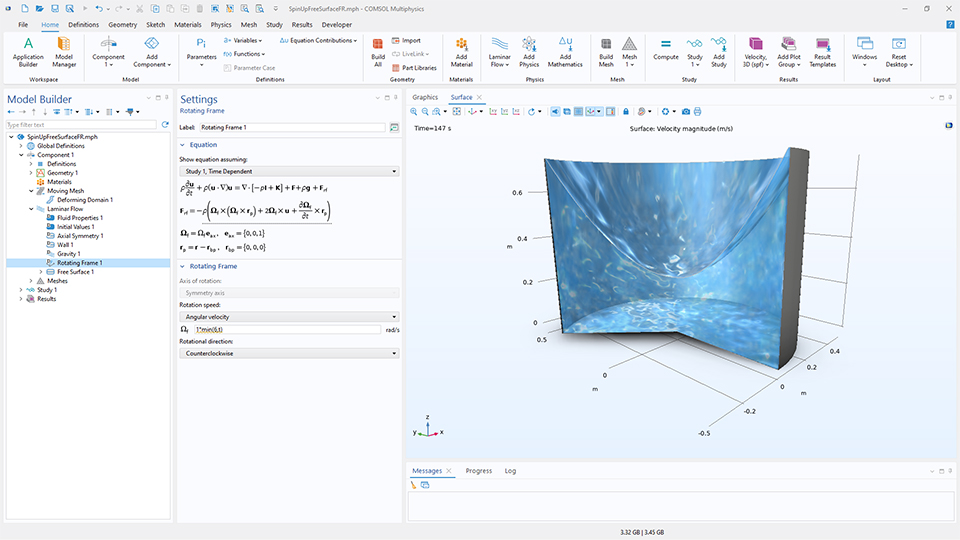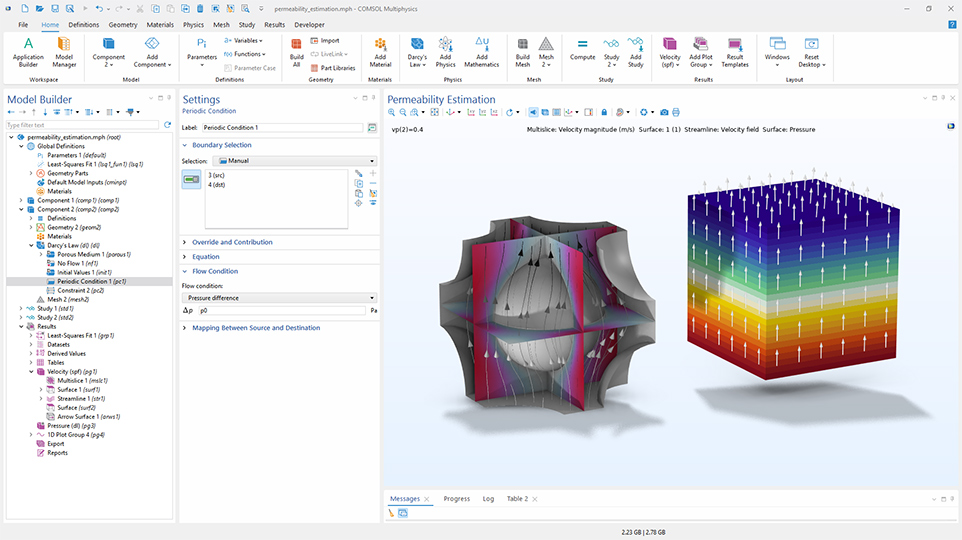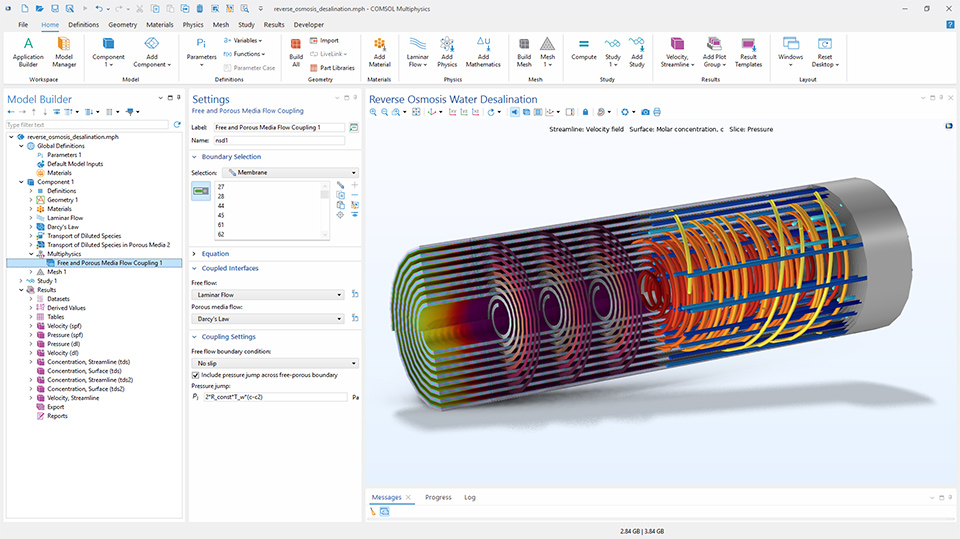Aggiornamenti Microfluidics Module
Per gli utenti del Microfluidics Module, la versione 6.4 di COMSOL Multiphysics® introduce una formulazione predefinita dell'effetto Marangoni indotto dai gradienti di concentrazione, un'alternativa efficiente per la modellazione di domini rotanti e altro ancora. Proseguite la lettura per ulteriori dettagli su questi aggiornamenti.
Effetto Marangoni determinato dai gradienti di concentrazione
Per i dispositivi e i processi microfluidici, il classico esempio dell'effetto Marangoni determinato dal gradiente di concentrazione è ora incluso nelle funzionalità Free Surface e Fluid–Fluid Interface. Questa funzionalità consente la modellazione di fenomeni determinati dalla tensione superficiale, come le “lacrime del vino”.
Funzionalità Rotating Frame come alternativa ai domini rotanti
La nuova funzionalità Rotating Frame esprime le equazioni del moto dei fluidi relative a un sistema di riferimento rotante stazionario o dipendente dal tempo, fornendo un'alternativa economica ai domini rotanti senza dover aggiungere equazioni. Offre inoltre opzioni per l'utilizzo di una formulazione a pressione ridotta o l'inclusione dell'approssimazione della pressione idrostatica per la forza centrifuga.

Condizione di periodicità
Una nuova funzione denominata Periodic Condition è stata aggiunta alle interfacce Darcy's Law e Richards' Equation per applicare facilmente la periodicità al flusso tra due o più contorni. Inoltre, è possibile creare una differenza di pressione tra i contorni di origine e destinazione, specificando direttamente il salto di pressione o prescrivendo un flusso di massa. Il modello Estimating Permeability from Microscale Porous Structures mostra questa nuova funzionalità. La condizione di periodicità viene solitamente utilizzata per modellare elementi di volume rappresentativi e calcolare proprietà effettive da utilizzare in mezzi porosi omogeneizzati.

Opzione Pressure Jump per l'accoppiamento Free and Porous Media Flow
L'accoppiamento Free and Porous Media Flow Coupling presenta una nuova opzione che consente di includere un salto di pressione attraverso il contorno libero-poroso. Ciò rende possibile modellare, ad esempio, la pressione osmotica su una membrana semipermeabile supportata da un materiale distanziatore poroso o un salto di pressione dovuto alla pressione capillare nel caso di flusso multifase.




